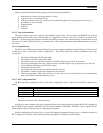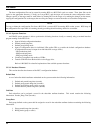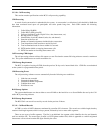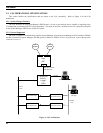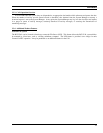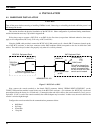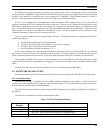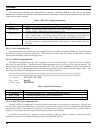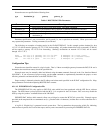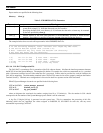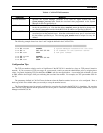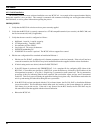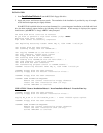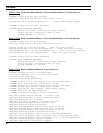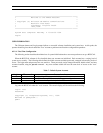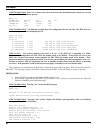
LBI-38965
21
Network routes are specified in the following form:
type destination_ip gateway gateway_ip
Table 4 - ROUTES.DAT File Parameters
Parameter Meaning
type
Keyword for the type of route being added, either host or network.
destination_ip IP address of the destination host or network, in Internet dotted-decimal notation.
gateway Keyword indicating that the next field is that of the gateway node.
gateway_ip IP address of the gateway to be used to communicate with the host address specified by
destination_ip.
Parameter specification is not case-sensitive, and is parsed (i.e., net is equivalent to network). White space and/or tabs
may separate the parameters. Trailing comments (#) are allowed.
The following are examples of routing entries in the file ROUTES.DAT. In this example, packets destined for host
147.117.1.2 will be routed to gateway 147.117.37.245 for forwarding. All packets destined for hosts on network 147.200.0.0
will be routed to gateway 147.117.32.2 for forwarding. Similarly, destinations on network 147.117.100. will be routed
through 147.117.32.3.
host 147.117.1.2 gateway 147.117.37.245 # Example of a host route
network 147.200.0.0 gateway 147.117.32.2 # Example of a network route
net 147.100.0.0 gate 147.117.32.3 # Example of `parsing
Configuration Tips
Network routes should be entered in a logical order. That is, if there are multiple gateways between the BCU/CAL and a
destination, the most direct route(s) should be specified first.
Network routes may be manually added and deleted using the route command discussed in the User Interface Manual
(LBI-38967). If you are unsure of proper routing, use the route command to experimentally determine the proper, or most
efficient, parameters and then add these to the ROUTES.DAT file.
Proper routing is intimately related to the IP address and subnet mask specified in the IP.DAT configuration file. Keep
these parameters in mind when adjusting ROUTES.DAT contents.
4.2.1.1.3. EXPORTS.DAT Configuration File
The EXPORTS.DAT file only applies to BCU/CAL units which have been purchased with the NFS Server software
feature. The NFS feature is always provided with the BCU. It is an option for the CAL feature. BCU users may disable the
NFS by using the “product” command discussed in LBI-38967.
EXPORTS.DAT defines which network clients are privileged to mount the BCU/CAL system disk. Example exports
provided on the template disk are commented out (i.e., preceded with a # character), and thus have no effect when the file is
processed.
A log file (1.2/log/nfs.log) is generated on each system boot. The log summarizes the processing of this file, indicating
what has been exported, who received the export, and any errors encountered in processing the EXPORTS.DAT file.



